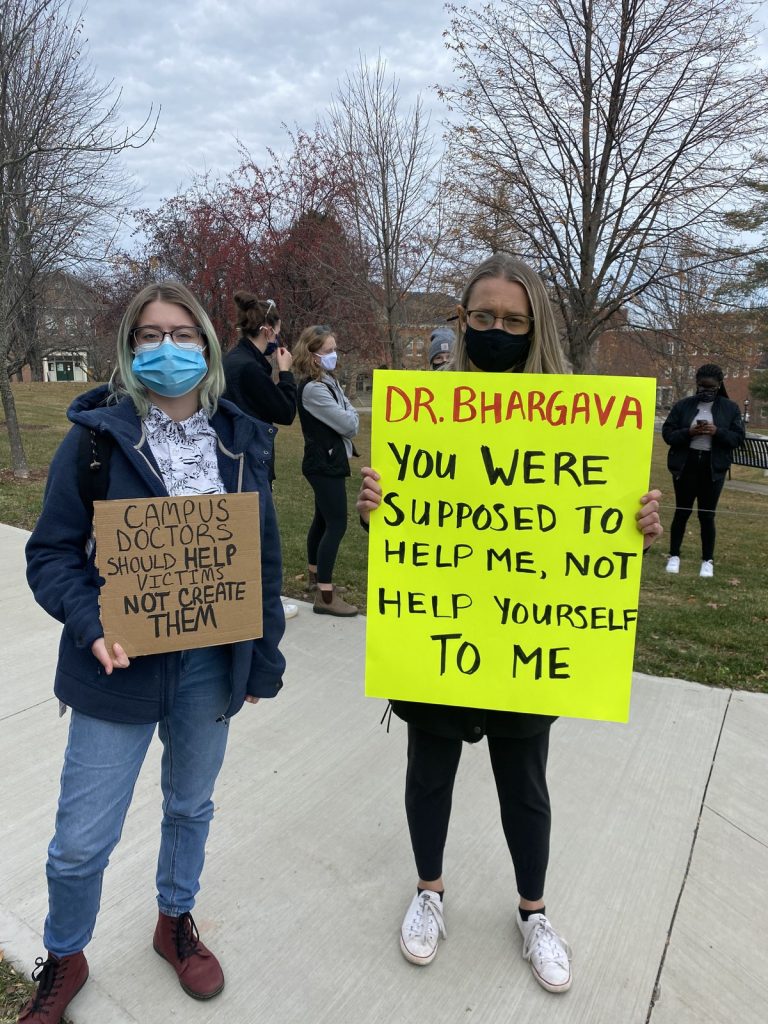By: Spencer Thorne
As of 2025, how far have campuses come with the prevention of sexual assault?
Ten years ago, in 2015, the Government of New Brunswick released “Now You Know” a website with information regarding all aspects of sexual violence for the people of New Brunswick.
Fewer than 1 in 20 sexual assaults are reported to the police, generally. New Brunswick provided a very interesting breakdown.
In New Brunswick alone during the year 2018, there were 579 sexual assaults, with the number nationally being 460,000.
These are very daunting statistics for students concerned about safety, or even going outside.
Thus, it is easy to understand why the government of New Brunswick wants everyone to know about this information — it is so we can feel safe.
“Now You Know” says that young people now face being targeted with comments and photos that are inappropriate and/or amount to harassment. 53% of young women have said that they have been sent inappropriate pictures nonconsensually: 11% were unwanted photos and messages about sex, and 10% received threatening or aggressive emails or text messages.
In the summer of 1976, the Fredericton Sexual Assault Centre was created from a Chimo Help Centre meeting. That meeting addressed rising concerns from local universities, high school councillors, the Fredericton’s Women’s Centre and other community members.
That November, a full-time director was hired to get this service up and going.
In 1979, the Rape Crisis Services separated from Chimo and opened a separate office and officially became incorporated in 1980.
Thirteen years later, March 17, 1993, the first proposal to establish the University Women’s Centre was sent out to the victim service fund from the UNB Student Action Committee on the Status of Women (SACSOW).
The Women’s Centre’s mandate at the time would have been,
“to coordinate both on and off campus support, services and resources to students who are victims of sexual assault during their academic year.”
However, this was not when the Centre officially opened.
As a response to changes made to the criminal code, the Fredericton Rape Crisis Centre became the Fredericton Sexual Assault Crisis Centre in 1994.
Nine years later, the Universities Women’s Centre officially opened and was established in 2003.
Today, it thrives as a support net for all students on Fredericton campuses through menstrual products, safe sex items and even a space to just come study or find community.
Most importantly the Centre is here to help victims of sexual assault and provide resources on where to get the help they might need.
In 2016, the University of New Brunswick developed and released its first sexual assault policy accompanied by a detailed set of procedures called UNB Sexual Assult Policy.
Moving forward, the University of New Brunswick is committed to keeping updated policy on sexual assault. As an ever-changing issue, UNB must perform regular reviews to maintain effectiveness.
In November of 2021, a review of the policy was submitted to UNB’s President which brought four main focuses to change:
- Prevention and Awareness
- Education and Professional
- Development, Intervention
- Policy and Strategic Development.
In addition to this new policy, in 2016, the position of Campus Sexual Assault Support Advocate (CSASA) was created through a partnership with Sexual Violence New Brunswick.
These advocates provide trauma-informed, feminist-based counseling to individuals affected by sexual assault at UNB Fredericton. They also serve as a resource for guidance and education, helping students navigate their situations and take action.
Sexual assault has clearly been an ongoing issue throughout history.
Yet, only in recent years has UNB finally taken the first steps to protect their student population.
We, as a society, think we are doing better, but realistically, until we achieve a safe, welcoming, and healing campus for victims, there is, and always will be, lots of work to be done




